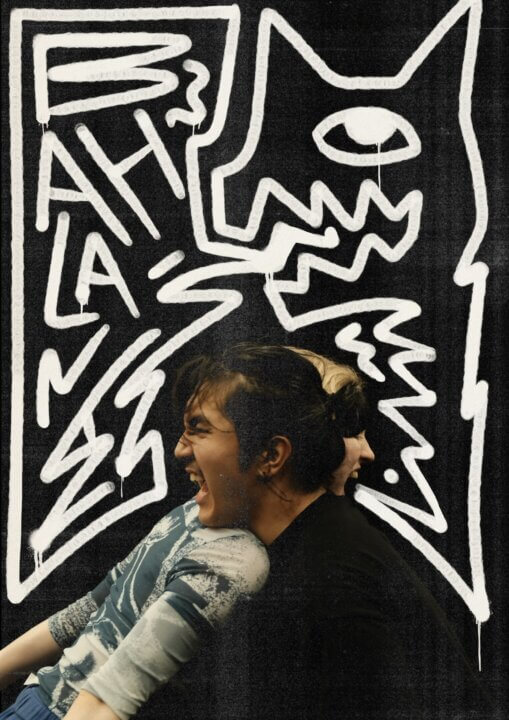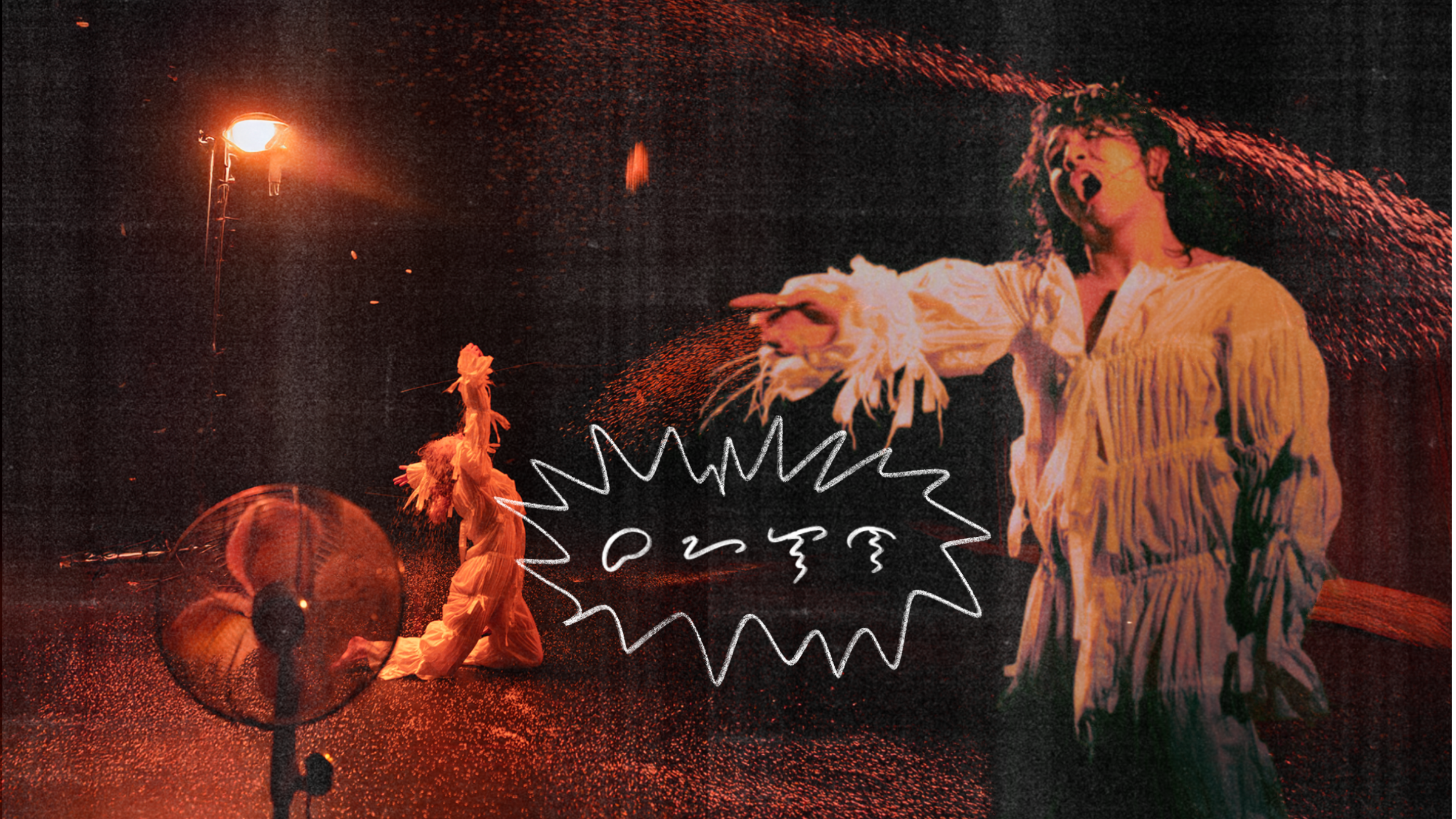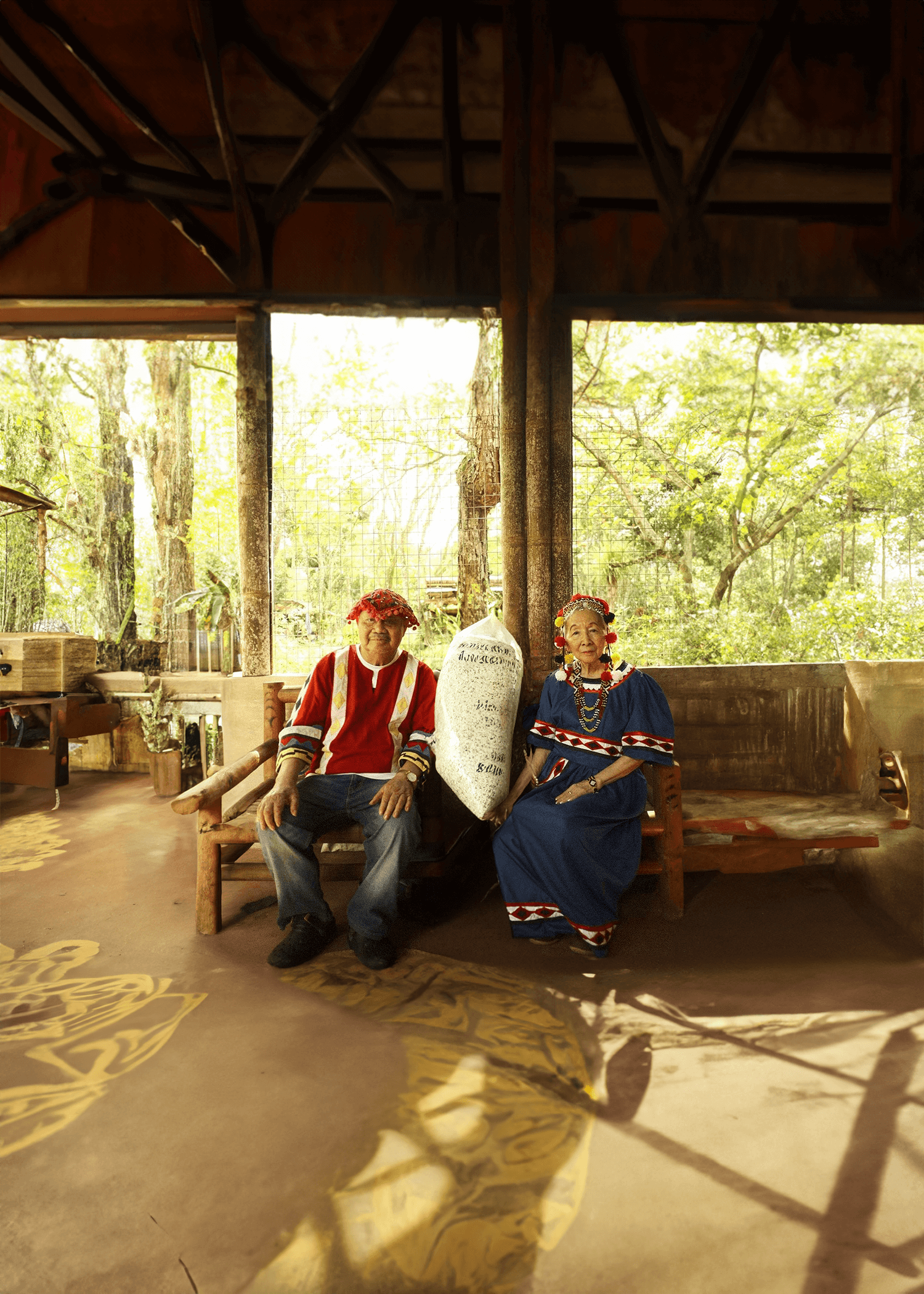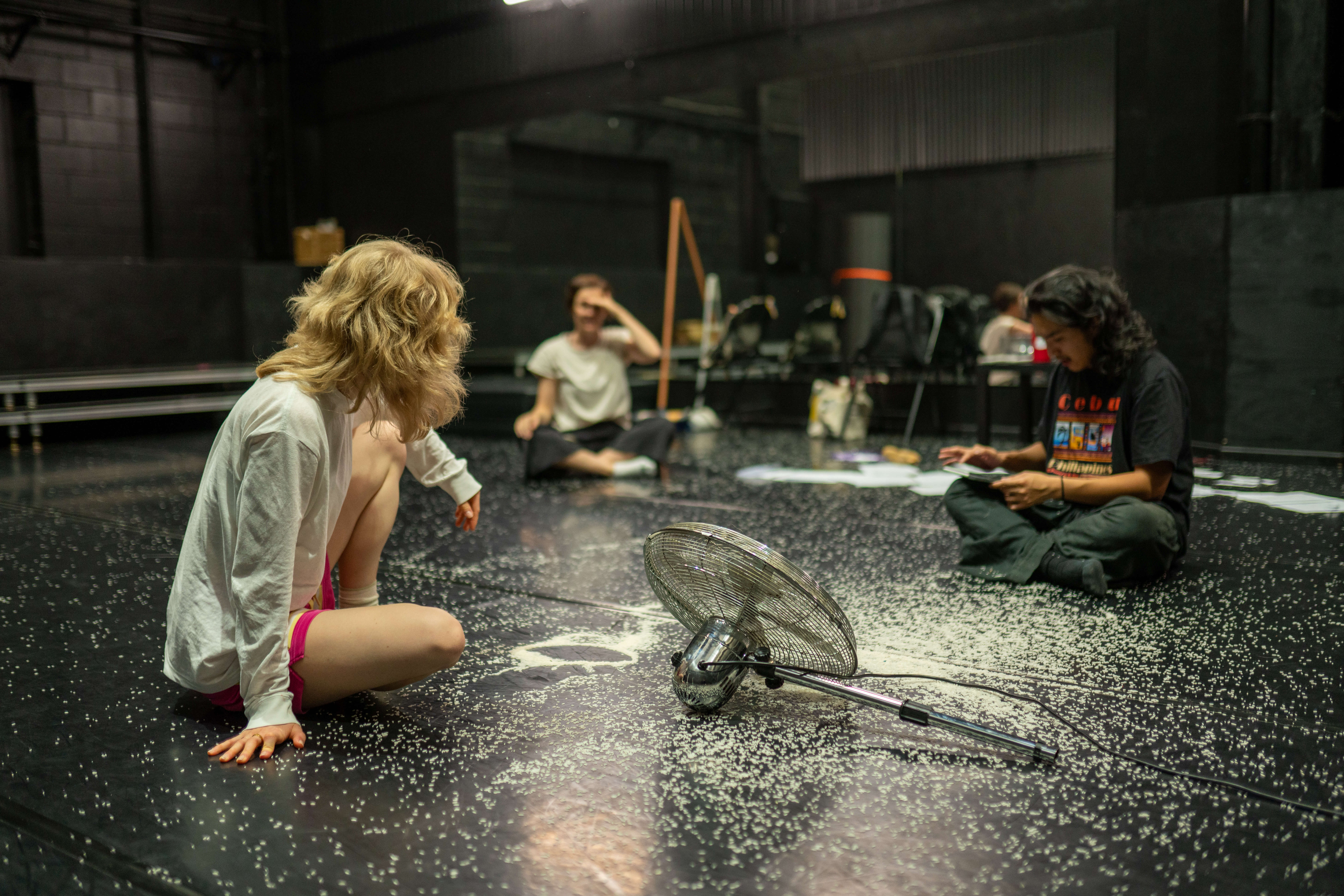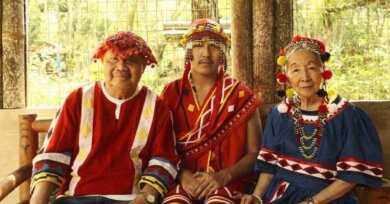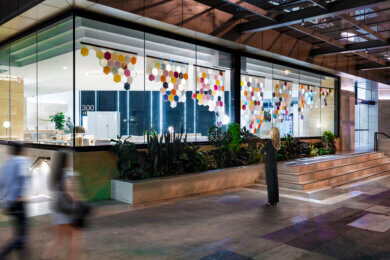At the heart of Bahala/o lies the Filipino philosophy of ‘bahala na’; a powerful, paradoxical phrase that has shaped the Filipino psyche for centuries. Often translated as “whatever happens, happens,” bahala na carries far more than resignation. It embodies resilience, courage and a quiet trust in the unfolding of life. It is both surrender and defiance. A graceful acceptance of uncertainty paired with an unwavering determination to move forward anyway.
In Bahala/o, I explore this spirit through the Filipino–Australian queer experience: a space where identity is constantly shifting, adapting and negotiating between worlds. The work doesn’t seek answers, but instead asks: how do we express ourselves fully in all our multiplicity? It becomes a meditation on the many selves we inhabit and the multiverses that make up who we are.
At its roots, bahala na embodies a convergence of belief systems, a uniquely Filipino fusion of Catholic faith and pre-colonial spirituality. One theory traces the phrase to Bathala, an ancient Tagalog deity revered as the supreme being or “God.” Some say that over time, Bathala’s essence — non-binary, fluid and cosmic — was reshaped through colonisation and Catholic influence, evolving into bahala na: a phrase that holds both divine surrender and personal responsibility. It is a mantra of faith and survival, born from centuries of cultural and spiritual hybridity — a sentiment akin to “let go and let God.
While in the West bahala na might be read simply as “YOLO” for Filipinos it carries an intrinsic balance of agency and surrender. To say bahala na is not to give up, but to proceed, knowing the risks, summoning strength, embracing uncertainty and trusting that one will be guided. It acknowledges vulnerability and confidence in the same breath. I may not know what will happen, but I know myself and I know I’ll find a way through (a very Filipino mindset).
This paradox, of faith and action, mirrors the Filipino concept of kapwa, or shared selfhood. In saying bahala na, one also leans into community: if things fall apart, perhaps others will hold you. It’s a form of spiritual and social resilience. For many in the diaspora, this becomes a way of navigating new worlds, a quiet reminder that home and identity can be carried within.
As someone shaped by diaspora, I’ve come to see bahala na as a practice of navigation and constant negotiation, a way of existing within hybridity. My Filipino heritage meets my upbringing in Australia; my Bisaya tongue fades, my English sharpens. Each return home deepens this tension. Yet I’ve learned that being Filipino isn’t bound to fluency, geography or appearance, it lives in stories, gestures of care, food, humour and memory. It’s in the way I act chalant, in the laughter that feels like home.
For the immigrant experience, bahala na holds even more weight. It’s what my mum uttered when she left the motherland in search of a better life, trusting that our roots will hold even as we plant ourselves elsewhere. Home, for us, is no longer a fixed place. It’s something we build and rebuild through people, connections and memories scattered like fallen rice.
To bahala na is not an act of absolute surrender. It carries a sense of rootedness. Something to fall back on, a quiet knowing of where one stands. I can bahala na my identity in the Philippines and exist as a version of myself to align with family expectations, because I know I have the privilege of returning to Australia, where another version of Buddy can exist freely. Vulnerability, then, becomes an act of grounding. To be open, one must also be anchored in self.
We carry all our identities in constant negotiation, shifting between what we are, where we are and who we’ve been. Sometimes it’s this awareness of self — of multiplicity, of fracture — that allows us to be vulnerable, to bahala na. To not overthink.
And maybe that’s why I can’t fully say bahala na and why I’m making this work.
Image: Aeron Maevin
